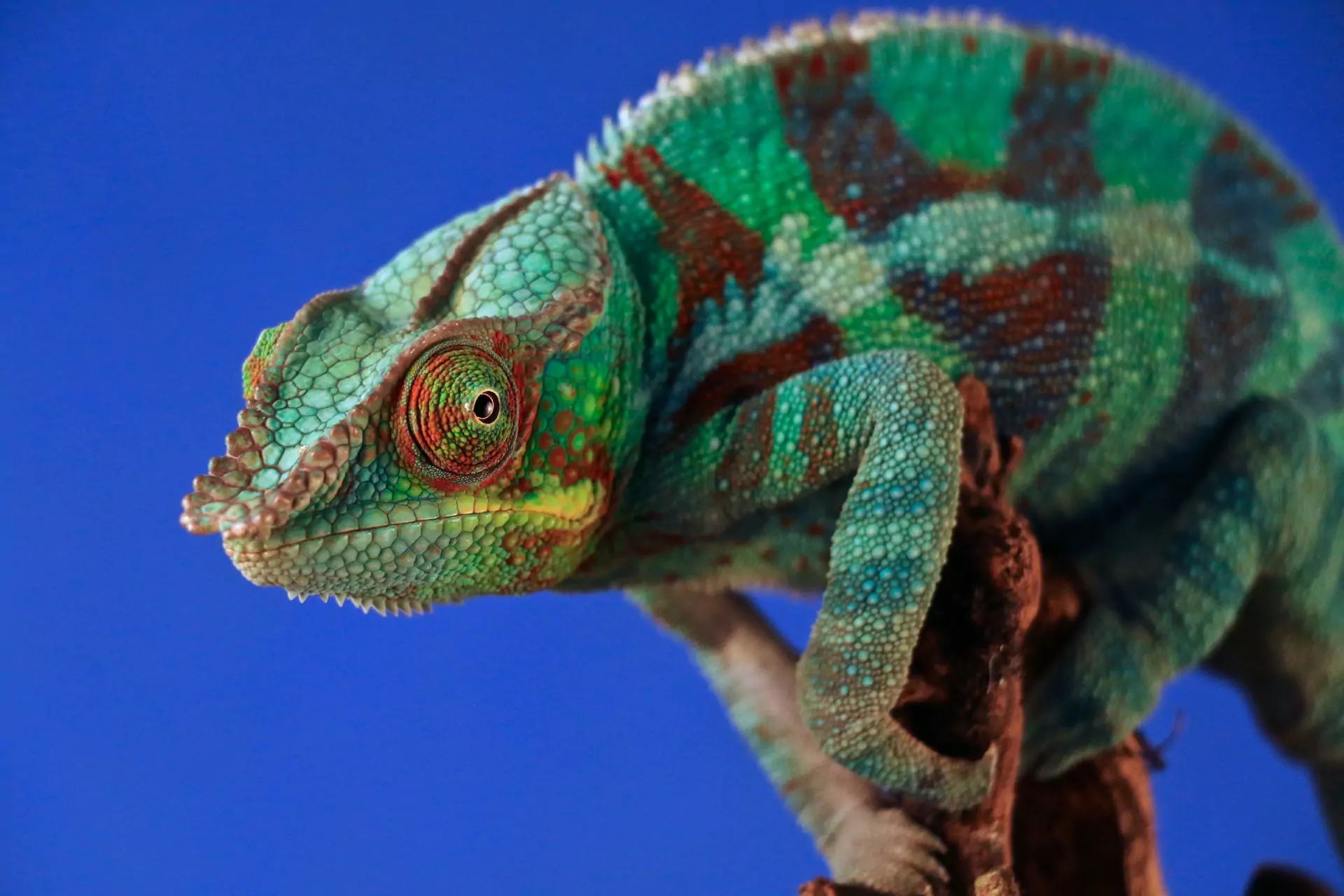Are you considering adopting a chameleon? Chameleons are without a doubt one of the cutest and most fascinating reptiles. However, these pretty lizards are extremely fragile, and need a lot of care. A Covington, GA vet offers some basic care tips below.
First things first: chameleons are definitely not starter lizards. If you’re new at keeping reptiles, we strongly recommend starting with an easier keeper. Bearded dragons and leopard geckos are good options.
A great habitat is critical for all reptiles, as is a proper diet, which is a whole other topic. Chameleons are arboreal, and require habitats that offer more vertical than horizontal space. You’ll need to provide plenty of spots for your lizard buddy to climb and hide. Live potted plants are a good option. (Tip: occasionally bury your pet’s feces in the plant pot, so it fertilizes it.) Just be sure to include only non-toxic plants that are sturdy enough to hold your tiny dinosaur. Devil’s ivy, or pothos, is a good one. However, you’ll need to add support for larger chameleons.
Several elements are needed for a proper chameleon environment. Substrate, temperature, hides, basking spots, heat gradients, lighting, and humidity are all crucial. Having even one of these elements out of whack can make your adorable pet sick very quickly. Do plenty of research, and ask your vet for specific advice, including tips on equipment purchasing, placement, and monitoring.
Chameleons may not look particularly lively, but just like any other animal, they can be susceptible to stress. Their skin may change color and/or get spotty when they’re feeling uneasy. As to some of the things that can cause stress? Being housed with other chameleons or other reptiles, improper environments, too close to other animals, being handled too much, and being faced by other pets, such as cats and dogs. Keep in mind that these guys are not cuddlers, and generally prefer to be left alone.
Reptiles have very slow metabolism, so illnesses can progress slowly with them. Some common issues include respiratory trouble; mouth issues, such as stomatitis; abscesses; infections; and reproductive issues, such as egg binding or sperm plugs getting stuck; and foot problems. Malnutrition is another common issue, and can cause metabolic bone disease, a debilitating condition that is extremely painful. Keep a close eye out for warning signs, and contact your vet immediately if you notice anything amiss.
As your Covington, GA veterinary clinic, we’re here to help. Contact us anytime!

